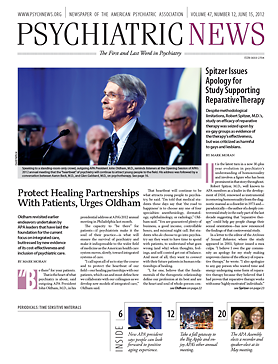Researchers have been looking for effective ways to treat cannabis use in young people. A study by the National Institute on Drug Abuse (NIDA) found that 23 percent of high school seniors said that they had ever used marijuana, and 7 percent acknowledged using it daily.
“Rates of initiation are increasing, possibly due to decreasing perceptions of risk due to the medical-marijuana movement,” said Kevin Gray, M.D., an associate professor of psychiatry and behavioral sciences at the Medical University of South Carolina.
“We have evidence-based psychosocial treatments of substance use disorders, but they have only modest efficacy,” said Gray at APA’s 2012 annual meeting in Philadelphia in May. Studies of medications like buspirone, dronabinol, gabapentin, and lofexidine have produced mixed results when used alone, but better outcomes when used along with psychosocial therapies.
Gray recently tested a combination of a drug with contingency management, in which patients are rewarded for good behavior such as meeting appointments or producing clean urine tests. The drug used was n-acetylcysteine (NAC), which is approved as a mucolytic agent and for treating acetaminophen overdoses. It is also sold over the counter as a dietary supplement for its alleged “antioxidant and liver-protecting effects.”
NAC activates the cysteine-glutamate exchanger in the nucleus accumbens, re-equalizes glutamate, and has known behavioral effects, explained Gray.
The 116 randomized study participants received either 1,200 mg twice a day of NAC or a placebo.
Contingency management offers an escalating set of monetary payments to participants, with payments dropping back to baseline if they miss a visit or have a positive urine test. All participants received brief weekly counseling as well.
Using pill counts, the researchers found a 95 percent adherence rate among those taking NAC and 93 percent among placebo users. Intention-to-treat response, including dropouts, showed an end-of-treatment abstinence rate of 41 percent among those taking NAC, compared with 27 percent for the placebo subjects.
These findings are intriguing but not conclusive, cautioned Gray. For one thing, he was testing two interventions at the same time, raising but not answering several other questions—for example, “Does NAC treatment require contingency management to work? How would a change in dosage affect results? Can it be used with other substance disorders? How will it work in adults?”


